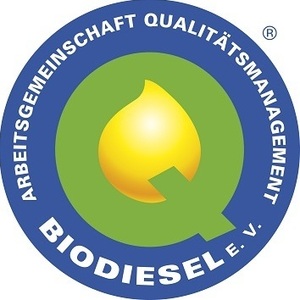Quality survey shows German biodiesel is hitting the mark

June 2, 2017
BY AGQM
Since 2010, the German biodiesel quality management association (AGQM) has published a yearly report about the quality of biodiesel produced and traded by its members. The obtained data show a steady quality improvement and the successful implementation of quality assurance measures by AGQM members.
In 2016, 64 biodiesel samples were taken and analyzed in four campaigns. Overall, 1,152 parameters were measured and only three limit violations were found that lay outside of the specification of EN 14214. Especially the parameters alkali and earth alkali metal as well as phosphorus content can be highlighted with values for all samples far below the respective standard limits.
The detailed quality report about the sampling at AGQM’s producers and warehouse operators in 2016, as well as an information sheet with all the average values for the individual parameters, can be found on the homepage of AGQM under sub-item quality.
Advertisement
AGQM is an organization founded by leading companies of the German biodiesel industry. As a technical association, AGQM predominantly deals with all issues concerning the quality management of biodiesel and its byproducts.
Advertisement
Related Stories
Clean Fuels Alliance America on June 10 announced the launch of the newly redesigned BQ-9000 website, delivering a streamlined and user-friendly experience that better showcases the value of biodiesel quality assurance.
Global Biofuels Alliance launches at G20 Summit
President Joe Biden on Sept. 9 joined leaders of India, Argentina, Brazil, Italy, Mauritius and the United Arab Emirates to launch the Global Biofuels Alliance. The launch took place on the sidelines of the G20 Summit in New Delhi.
Neste is disputing a report filed with the USDA that suggests the company may have received fraudulent used cooking oil (UCO) volumes at its renewable products refinery in Singapore, specifically virgin palm oil from Indonesia.
Members of the European Parliament (MEPs) on Sept. 13 approved a new law that ramps up requirements for sustainable aviation fuel (SAF) within the European Union but sets limits on what types of feedstocks that fuel can be made from.
Clean Fuels outlook predicts growing supplies of used cooking oil
Global used cooking oil (UCO) supplies are anticipated to rise from 3.7 billion gallons in 2022 to between 5 billion and 10 billion gallons by 2030, according to a report released by Clean Fuels Alliance America on Sept. 13.
Upcoming Events










